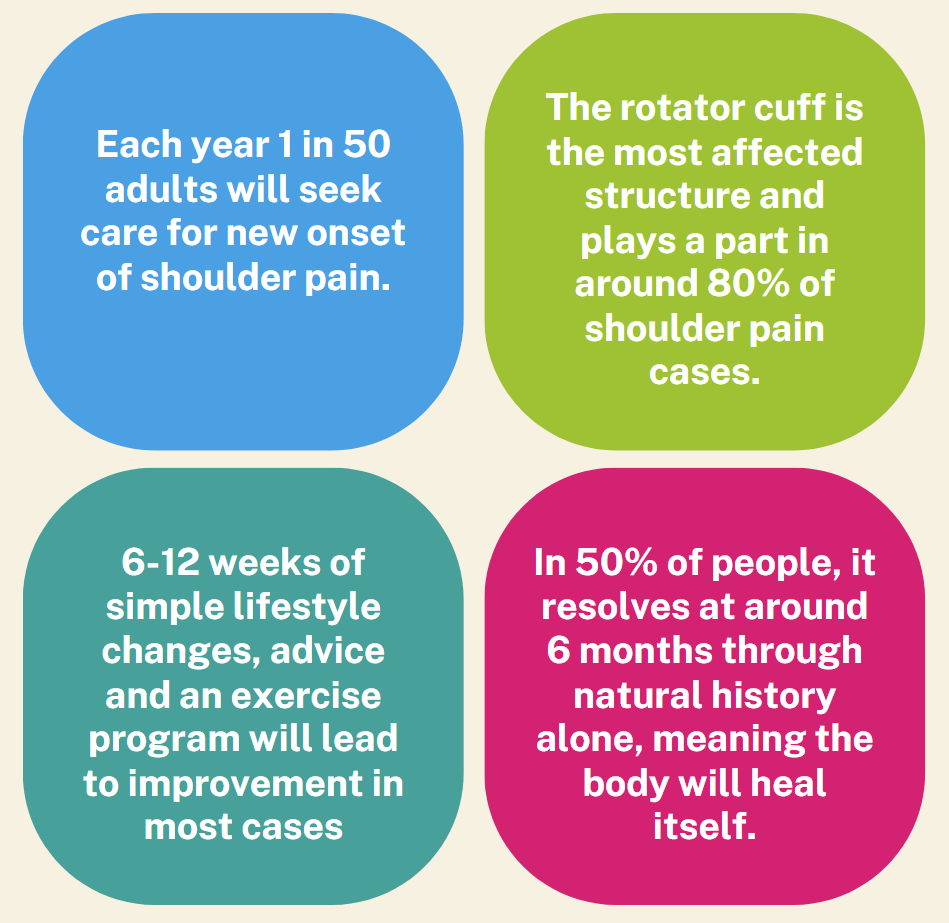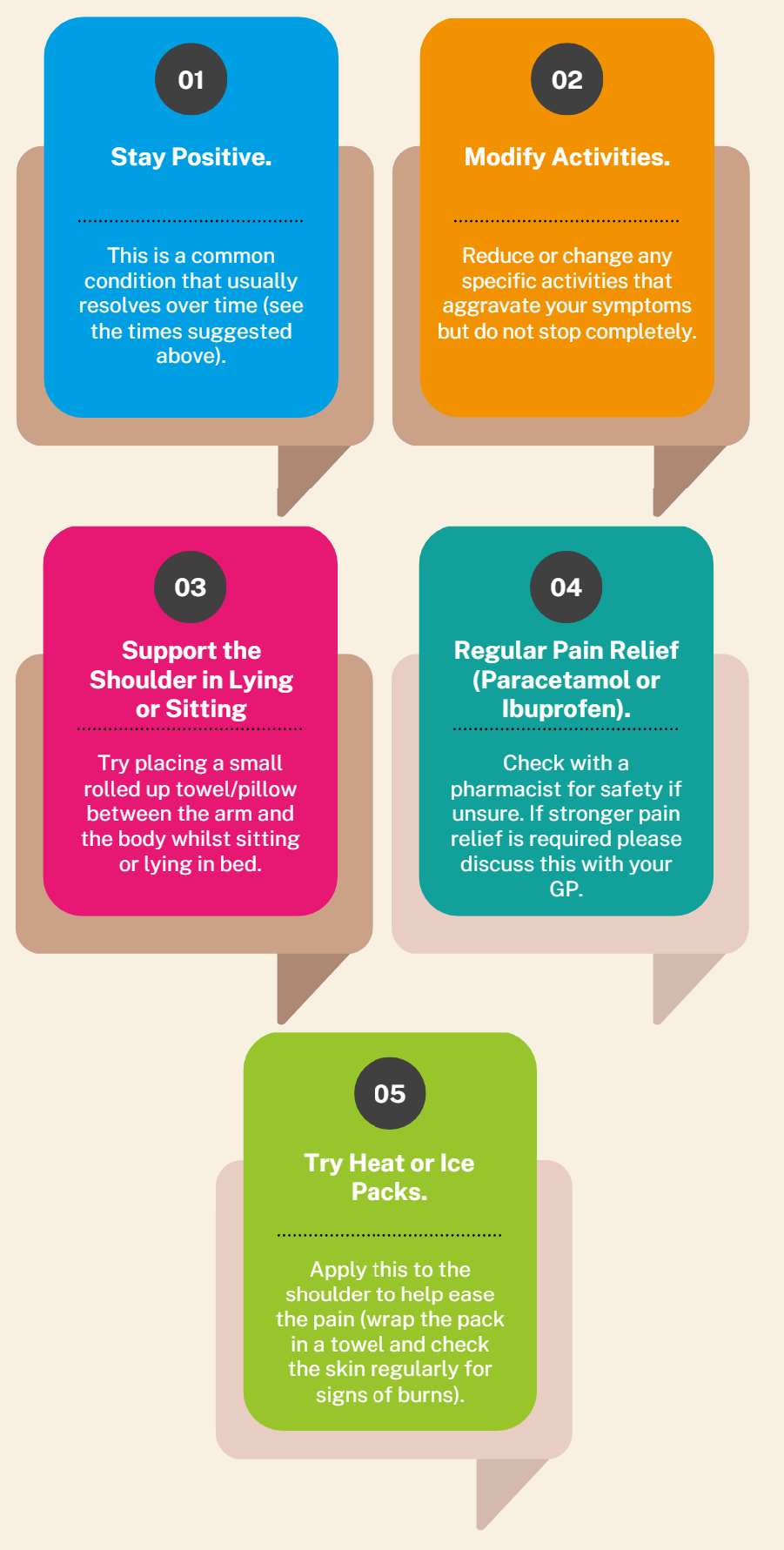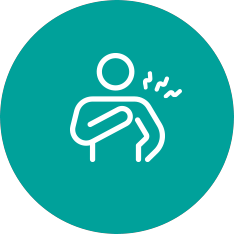Rotator Cuff Related Shoulder Pain
What is Rotator cuff related shoulder pain?
Rotator cuff related shoulder pain is very common condition that causes pain at the top and outside of the shoulder, which may spread into the arm, towards the neck and shoulder blade.
The ‘Rotator Cuff’ is the name given to the muscles and tendons that stabilise the shoulder. This condition has been known by many names including "rotator cuff tendonitis", "bursitis", "subacromial shoulder pain", or "shoulder impingement".
Rotator cuff related shoulder pain can be caused by trauma, overload, repetitive movements, or age-related changes. It commonly affects people between the ages of 35-75 years.

What are the symptoms?
- Pain around the shoulder and upper arm
- Pain on certain movements such as: reaching outwards, upwards or behind your back
- Reduced movements and strength at the shoulder
- Pain on activities such as: getting dressed, washing your hair, and lifting
- Pain when laying on your shoulder
- Affected sleep
What are the causes?
The exact cause is not always known, but there are many factors that can contribute towards it:
- Sudden increase in load or demand placed on the shoulder, such as: decorating a room or moving house
- Repetitive activities that continually overload the shoulder
- Inactivity causing deconditioning of the muscles and tendons
- Smoking
- Being overweight
- Diabetes
- Depression and anxiety
- Rheumatoid Arthritis
- Thyroid problems
- Poor diet
For more information to help support your general health and well-being, please click here to access our "Healthy You" page. This includes information on exercise, mental health, smoking and weight management.
How long will it last?
Everyone's shoulder pain is different and full recovery can depend on multiple factors, but most people will make a full recovery. Most people will see some improvement following 6-12 weeks of lifestyle changes, advice, and an exercise program. Tendon healing can be a slow process, and can take up to 18-24 months to fully resolve.
What can I do to help myself?

What else can I do?
A gradual increase in load can help the tendon structure improve. We have provided some exercises in the links below. Start with the easiest and build up to the more advanced exercises as you feel able to.
Rotator cuff related shoulder pain - EASY
Rotator cuff related shoulder pain - MODERATE
Rotator cuff related shoulder pain - ADVANCED
Do I need an x-ray or scan?
In most cases, no. A good history and physical examination of your shoulder alone provides enough information to diagnose your problem. Scans and x-rays are not always useful for diagnosing shoulder pain. While a scan or x-ray may provide information it rarely alters the treatment plan.
Imaging findings are very poorly linked with pain and often people with no pain have very similar findings on their scans/x-rays to those that do. X-rays and scans can help for a small number of people in certain situations and will be recommended by a healthcare professional if required.
What about a steroid injection?
A steroid injection may be considered to help control the pain in some circumstances. The risks and benefits would be discussed with your Physiotherapist or GP and is not always an appropriate option for all patients.
Symptoms to check
Click the plus sign to see a list of problems that could be a sign you may need to be checked urgently
Get advice from 111 now if:
- the pain is sudden or very bad
- you cannot move your arm
- your arm or shoulder has changed shape or is badly swollen
- you have pins and needles that do not go away
- your arm or shoulder is hot or cold to touch
- the pain is severe and started after an injury or accident, like a fall
- hurts when you exercise but goes away when your rest
- you are experiencing chest pain/tightness with your shoulder pain
111 will tell you what to do. They can tell you the right place to get help if you need to see someone.
Go to 111.nhs.uk or call 111.
Immediate medical advice is available by contacting NHS 111


 Shoulder
Shoulder